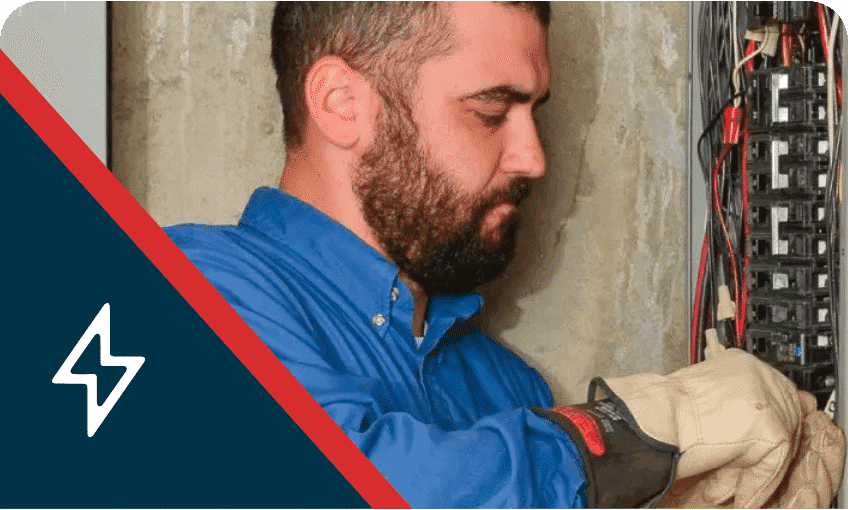If you are seeking a career with a clear progression as to how to build your experience level, electrical may be a great option for you! Residential Electricians are very good with hands-on work, and have strong hand-to-eye coordination with the ability to clearly distinguish colors used to identify wires. You must be someone with strong critical-thinking skills so that you can perform tests and use the results to diagnose problems. If you are interested in becoming an Electrician, you will start with an Apprenticeship approved by the state. From there you will become a Journeyman, and then finally earn the title of a Master Electrician. Here is a brief overview of the three levels:
Apply Now

Apprentice
As an Apprentice, a high school diploma or GED equivalent is the entry-level education required to be an electrician. As an Electrical Apprentice you will be performing electrical jobs under the supervision and guidance of a Journeyman or Master Electrician. What better way to learn, than by “on-the-job training?” You will also be responsible for completing coursework during your apprenticeship. These programs typically take four to five years to complete (depending on the state). This will include a certain amount of both classroom time and supervised on-the-job training. Registered apprenticeships are crucial to keeping the trades alive. This is what allows the industry to maintain a high level of professionalism and skills and is a form of mentorship that will allow our company to continue to grow. We view our apprentice’s as the future of Heritage!
Journeyman
After you have completed the requirements for your apprenticeship and complete the licensure exam in your state, you will then become a Journeyman Electrician. The job responsibilities of a Journeyman Electrician include installing wiring and electrical components, repairing and replacing old wiring fixtures, reading blueprints and planning electrical installations or updates. You will also be able to train and mentor apprentices and keep the cycle going!
Master
To earn the licensure of a Master Electrician, additional training and education is required. This can take between two to five years to achieve (depending on your state). Responsibilities of a Master Electrician will include meeting with other contractors to determine the scope of details of projects, coordinate projects with suppliers and permit offices and scheduling work assignments for journeyman and apprentice electricians.

Financing Made Easy
When you choose Heritage, you can rest easy knowing that we provide straightforward options to help you budget for a complete solution that will last you for decades to come.
VIEW FINANCING OPTIONS
Complete Care Plan
With Complete Care, enjoy peace of mind knowing your home's plumbing, heating, cooling, and electrical needs are handled year after year—hassle-free, with added benefits.
VIEW PLAN







